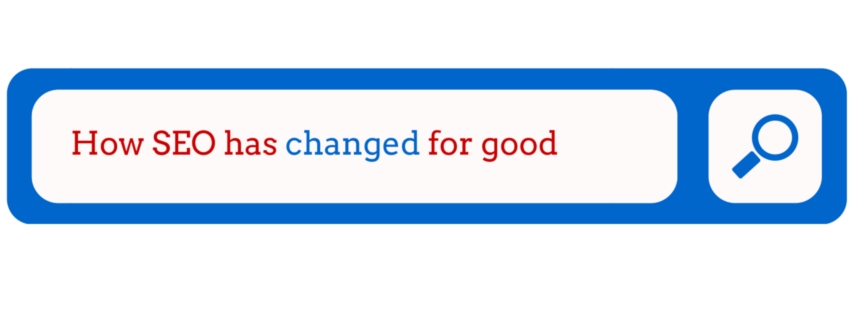Keyword research: Smarter process of targeting the right keywords
Among the digital marketers, and effective and competitive keyword research is gaining much importance.The required skill for this not only includes the basic know-how relating to developing a list of sound keywords for SEO campaigns but it also it involves the application of these keywords in creating suitable, relevant and reliable quality content while considering about what phrases should be part of the content.
This article is mainly aimed to introduce you a framework for categorizing the keywords and the smarter process of targeting the right keywords.There are different types of keywords are used for representing the different levels of interest and intent.These keywords are categorized by the type and efficiency of converting them.You need to invest the money and the time only for the right keywords that are closer to the bullseye.
Let’s take a look at the popular keyword terms:
- Brand terms: In this category, the keyword terms are the brand terms which are very popular or familiar with the people and are very easy to convert.Though this type of keywords does not participate in producing the impressive web pages and page views, yet they are capable of attracting a higher conversion rate in both paid and natural search.
- Product terms: Such keyword terms are about the type and nature of your product and service as what problem they solve.If you have a long array of products and services, the list of such terms can be a bit lengthy.Here, your cost per action (CPT) is usually higher than on brand terms, but these terms bring you a comparatively higher traffic and search queries.
- Competitor terms: At the beginning of paid search marketing the competitive terms were used as just the second only to brand terms to get conversion rate and ARP efficiency.As at the present day, the leading search engines like Google has very strict quality score requirements, it has become very difficult to find out the exactly suitable competitive terms and reasonable CPC (cost per click) on them. These terms can be your best tools to face competition against your competitors in your paid search campaigns.
- Substitute product terms: It is about using something instead of the actual thing like you are selling the dealing in LCD Television and you might optimize for (or bidding on) DVD players.Google and the other search engines do not consider them as relevant.By the way, if you are getting all the volume can out of previous categories, they are worth considering.
- Complementary product terms: These products are complementary to your product or go with your product, for example, “mobile accessories”, if you are selling mobiles.In the other words, it is someone other’s product terms.One can gain some marginal conversing with them.
- Audience terms: In this category, usually all the terms are included which can be searched by the target audiences.These kinds of keywords have the vast impression volume so this is also known as the tempting category to try.
The Process of Keyword Research
Creating the seed list
The seed list is meant by the initial set of keyword ideas.These keyword ideas can be the combination of popular terms along with the problems that can be solved by your products and services.
The following ideas can be applied for researching the keywords:
- Research the audiences that what are the terms mainly used to describe the required products and services.These can be easily found by searching blog posts, comments, and forums.
- There are many analytical tools available online, that can help you to find out that what is most used searched terms by the present audiences.You should use the internal site search tactics for this.
- Now, check out for competition and figure out that what your competitors are focusing on.You can choose any of the various different tools available to perform this function easily and effortless manner.
Refining the keyword list
When you have prepared a good keyword list, you have to refine it and pick out some really suitable keyword terms.While we are working for creating a keyword list for search engine optimization, you need to consider the limited number of keywords you have to optimize for.
Some important factors you need to take care while choosing keyword are:
- Keyword categorization: If your final keyword list is ended up with nearby 200 audience keywords and only 30 product keywords, you will surely drop few less interesting audience terms.You will have to concentrate on the terms closer to the target category.
- Competition: Get help from online tools (for example, Google) that help to rate the competitive keywords from low to high; the higher value represents the more competition.But these rankings mostly relate to paid search only.These tools can facilitate you to come up with the keywords that may have an easier chance to win the cut-throat online marketing competition.
- Search landscape: You need to enter any of your important terms into the search engine like Google and observe the result comes up.Understand it with an example, you are engaged in campaigning for cosmetic brand The Body Shop, but when you search for it,m you will find that the term “body shop” also refers to cars. This is a very helpful method that can help you to get rid of some confusion and potentially negative resulting keywords from your target list.
- Semantic Grouping: When you go further with your words, you need to create a column to group them semantically.These strictly connected groups of words are ideal for PPC ad groups. If some of these groups are a large number of words, you should feel free to drop some with the lower search count.
Conclusion:
Usually, people get confused with the length of the keyword list.This depends on the size and complication level of your products and services, yet it should be in the limited size.So here is your smarter way of keyword research for your brand or product.If you have any query or suggestion related to this article then please share with us in the comment section.







